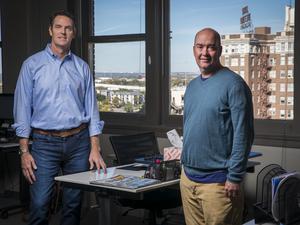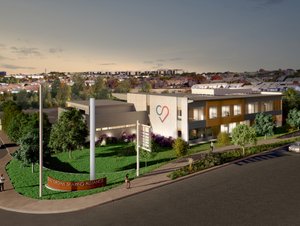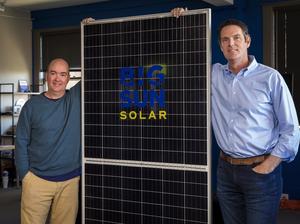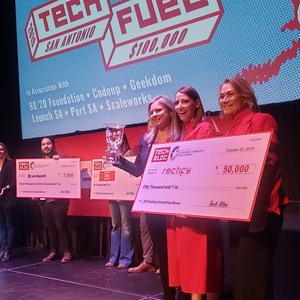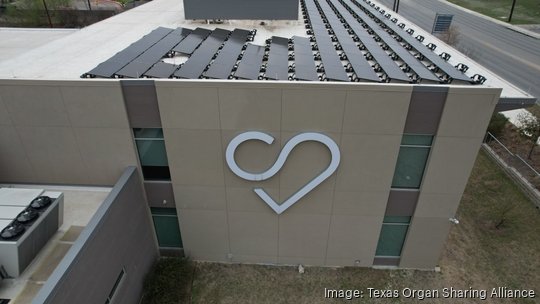
The Texas Organ Sharing Alliance (TOSA) of San Antonio, one of 57 federally designated organ procurement organizations in the U.S., has gone solar.
Recently, TOSA announced the completion of a 51.6kW rooftop solar system at its new, 27,5000-square-foot headquarters in the South Texas Medical Center. The project was commissioned in April 2022 and construction began in February. The system is expected to offset TOSA's energy consumption by 21%, saving the nonprofit between $8,000 and $9,000 in electricity costs each year.
TOSA's overhead costs are also lower. With the passage of the Inflation Reduction Act (IRA), the nonprofit will now be able to recoup its investment by up to 40%, according to Robert Miggins, co-founder and CEO of Big Sun Solar.
"It's a total game-changer," Miggins told the San Antonio Business Journal. "It changes everything."
Following the passage of the IRA in 2022, nonprofits and other tax-exempt entities are eligible for 30% direct pay under Investment Tax Credit (ITC) Solar Tax incentives to offset the cost of installing solar power systems. The IRA also raised the ITC from 26% to 30% for projects "placed in service" before 2033.
The ITC includes six different bonus credits, two of which are stackable. One of those stackable credits is a 10% bonus for projects that meet domestic manufacturing requirements. Because Big Sun Solar buys its solar panels from Mission Solar Energy, a domestic supplier, TOSA was eligible for a 10% bonus on top of the 30% direct pay.
Miggins said before the IRA, it would take nonprofits 15 years on average to break even on their solar investment. TOSA could recoup its costs in less than half the time.
"Shortly between six and seven years from now, they'll hit break-even on their annual savings," Miggins said. "Then after seven years, and every year after that, it's a winner, right? It's just way better for them."
The nonprofit had considered implementing solar during the design phase of its new HQ back in 2018, TOSA CEO and President Joseph Nespral said, "But as far as utilizing solar back then ... we found out that was a roadblock for us, because the incentives that existed at the time were not available for not-for-profits."
"Fast forward to last year. ... We started reading about the new incentives that were being created under this administration, and so I started doing research and looking around [for] who locally I could talk to," Nespral added. "That's how [this project] came about."
Nespral said there were many benefits to working with Big Sun Solar, namely that they were "immediately responsive" and "very professional." Working with TOSA was also a proud moment for Miggins, who has a personal connection to the organ donation center.
"I have a family member who is a recipient of a liver from an organ donor, and it saved her life," Miggins said. "That didn't come into anything about our sales, period. ... That happened to be someone who has benefitted from what TOSA does."
Besides TOSA, Big Sun Solar has installed rooftop solar for two other nonprofits: Cross Roads Church in Windcrest and Will Smith Zoo School in San Antonio.
Brian Diebold, pastor at Cross Roads Church, said the church's decision to go solar was ultimately motivated by cost savings as a result of the IRA.
"We had considered going solar before, but the difference this time around was the availability of the 30% direct pay from the Inflation Reduction Act that made the decision make more financial sense for us," Diebold said.
Will Smith Zoo School, the other nonprofit where Big Sun Solar installed rooftop solar panels, is the first campus in the United States to be LEED platinum certified, which is the highest sustainability rating awarded by the U.S. Green Building Council. The 35.38 kW rooftop system has offset carbon dioxide emissions by 21 tons and resulted in an annual energy savings of $4,753.
Miggins said Big Sun Solar's goal with nonprofits is to "create awareness" of the legislation so more nonprofits can take advantage of the savings.
"It's difficult to get the word out," Miggins said. "That's why we're so excited about having early adopters like TOSA."

